Europe
Nobody expects the Spanish Inquisition – but you might on a website that covers mediaeval history. You won’t be disappointed as we have an article exploring that subject here. Religious activity and influence on international affairs, culture and politics is also explored in French history and across Europe. The exploits of the Vikings are addressed along with their legacy and influence on early medieval Europe and the establishment of the new European societies. Read more
Sort by:
Date (Newest first) | Title A-Z
Show:
All |
Articles |
Podcasts |
Multipage Articles
-

Virtual Branch Recording: Food and drink in the medieval monastery
ArticleClick to view -

Virtual Branch Recording: Poet, Mystic, Widow, Wife
ArticleClick to view -

‘A little bird told me’: spies and espionage in the early medieval world
ArticleClick to view -
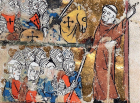
The First Crusade, 1095–99
ArticleClick to view -

Film: Berengaria of Navarre
ArticleClick to view -
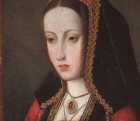
Excluded by men? Joanna the Mad, patriarchy and a charge of insanity
ArticleClick to view -
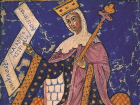
(Un)exceptional women: queenship and power in medieval Europe
ArticleClick to view -

History Abridged: Salt mines in Eastern Europe
ArticleClick to view -
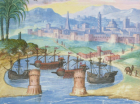
History Abridged: The City of Alexandria
ArticleClick to view -
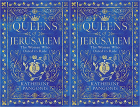
Queens of Jerusalem: The Women Who Dared to Rule
ArticleClick to view -
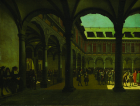
Origins of the European financial markets
ArticleClick to view -

My Favourite History Place: The Beguinage at Bruges
ArticleClick to view -

Britain and Brittany: contact, myth and history in the early Middle Ages
ArticleClick to view -

Linking Law: Viking and medieval Scandinavian law in literature and history
ArticleClick to view -
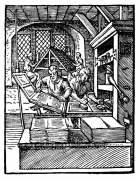
History Abridged: Publishing
ArticleClick to view -
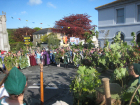
A European dimension to local history
ArticleClick to view -

The Anglo-Saxon Kingdoms and Europe
ArticleClick to view -
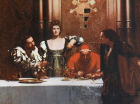
The Borgia: from fact to fiction
ArticleClick to view -
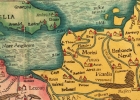
A precious jewel: English Calais, 1347–1558
ArticleClick to view -
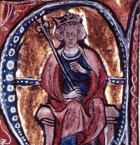
Saxons, Normans and Victorians
ArticleClick to view

